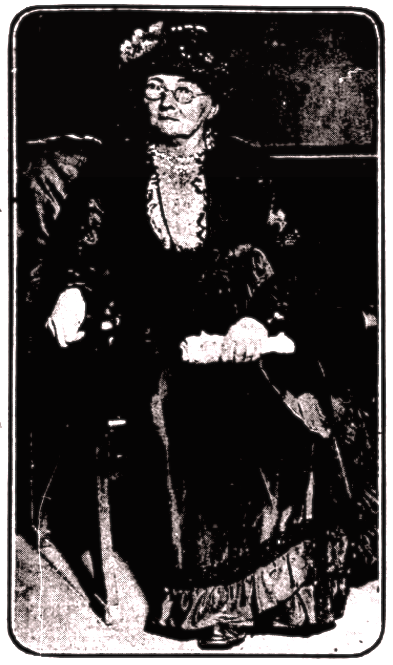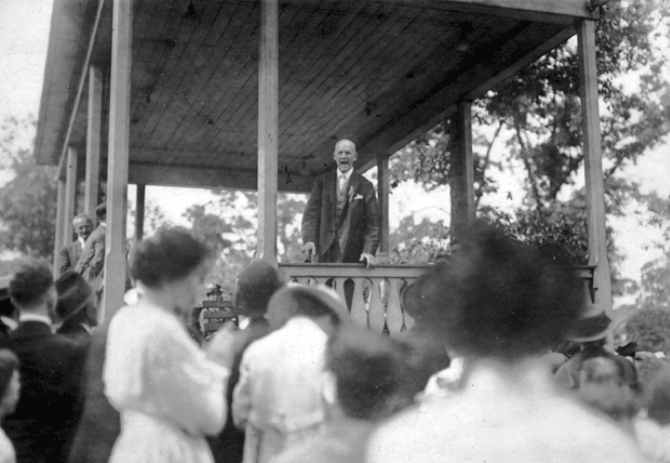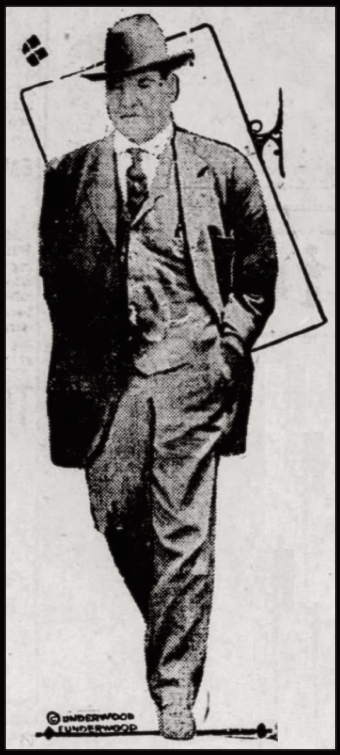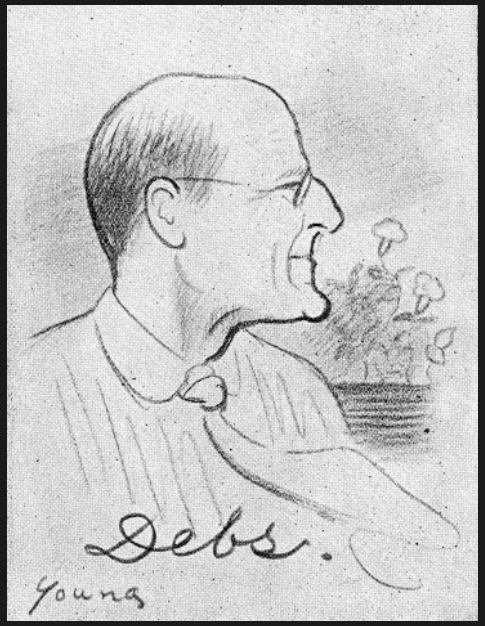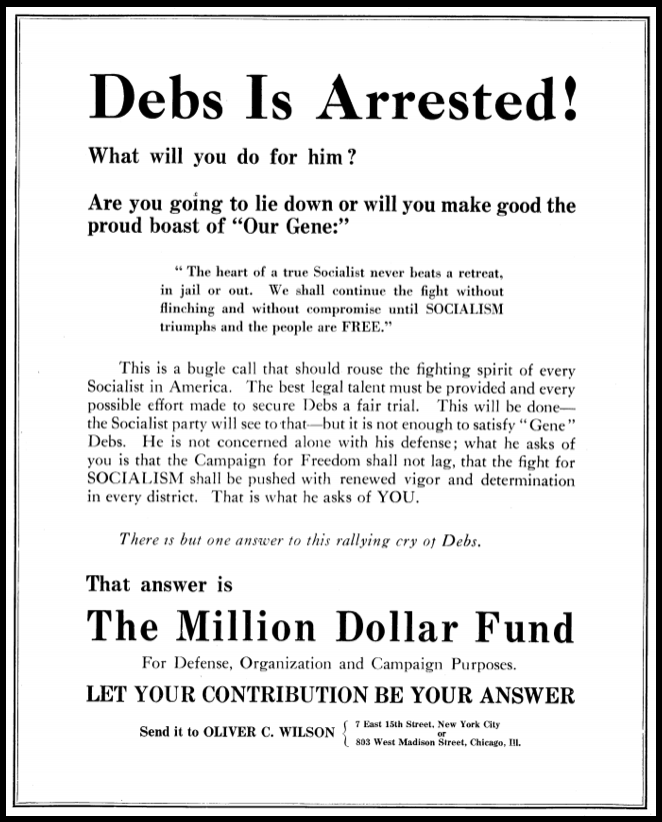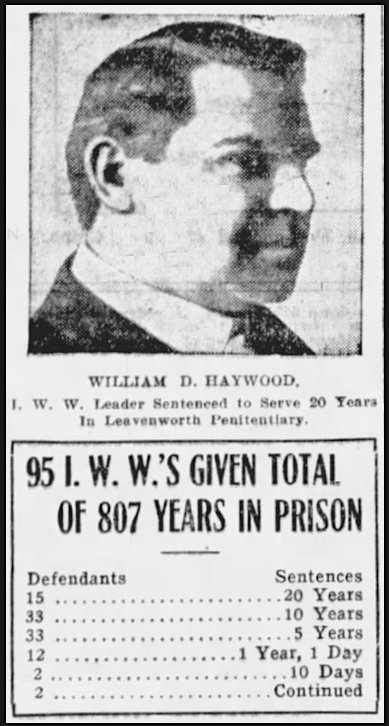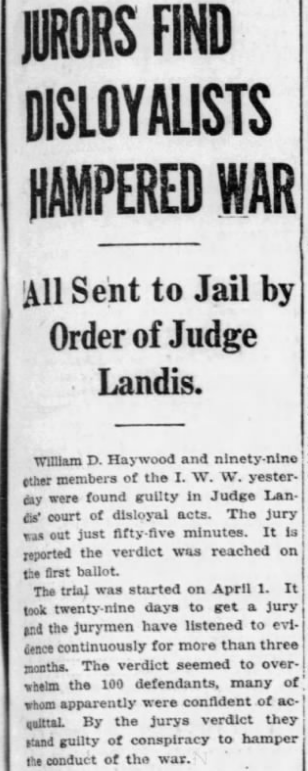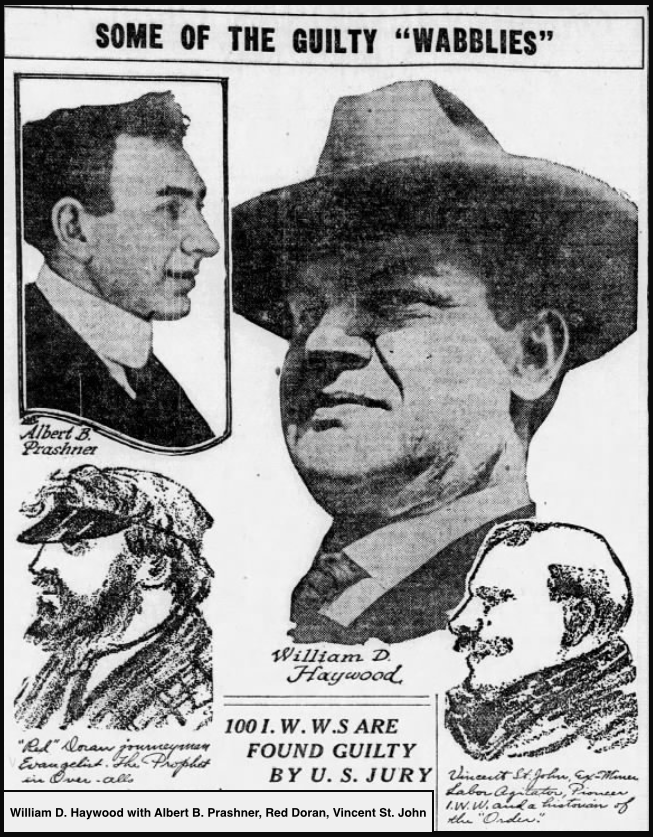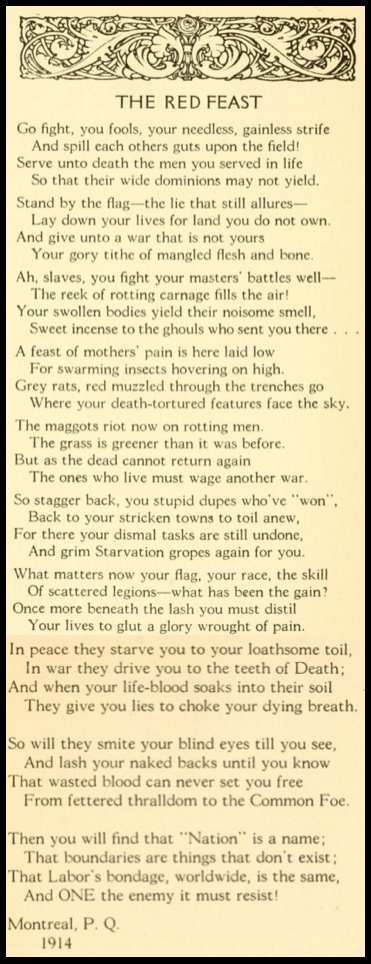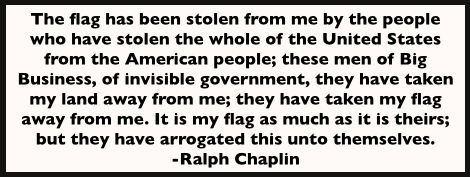
~~~~~~~~~~~~~~~~~~~~~~~~~~~~~~~~~~~~~~~~~~~~
Hellraisers Journal, Sunday July 28, 1918
Chicago, Illinois – Testimony of Ralph Chaplin
Report from Defendant Harrison George:
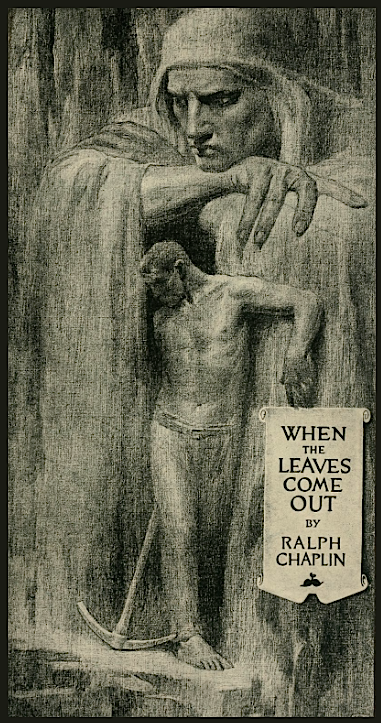
Ralph Chaplin, defendant, artist-poet, and editor of “Solidarity” during 1917, took the stand on the morning of July 19th, 1918, and gave an account of how his life’s events had influenced his conclusions upon industrial and political questions. Born in Kansas thirty years ago, he had studied art at night-school while working during the day-time in the darkroom, “Spot-knocking” photographs. Later, another boss, knowing he was a “scissor-bill,” had him pledge $10 a week out of a $16 wage to invest $500 in the boss’ business. When that was paid in, the boss told him to go to hell and got another victim. This $500 was recovered because Chaplin was a minor when the contract was made; so he took this and started into business for himself with the ambition to be “independent.” But—he found a trust controlled all supplies and he was unable to buy anywhere and had to quit. So he went back to the easel, working for wages.
He then went to Mexico for one year and noted the extreme poverty of the peon class under the Diaz regime. Coming back, he had worked for the Chicago Portrait Company until the artists struck against conditions there. When that strike was lost he went to West Virginia, where he did artist work in the coal mining region. For several years previous he had been an enthusiastic member of the Socialist Party, “soap-boxing” and writing articles.
In West Virginia he did much work on the “Socialist and Labor Star” at Charleston [Huntington], which paper became the spokesman for the U. M. W. of A. coal miners’ strike at Paint Creek and Cabin Creek. During this strike Chaplin acquired his hatred of the labor-crushing militia. He described to the jury the “Bull Moose Special,” an armored train, built by union machinists in the C. & O. shops, loop-holed for machine guns and rifles; a train that was manned by Baldwin-Felts detectives and commanded by Quinn Morton, a company superintendent, and in the darkness run through the strikers’ colony at Holly Grove, belching death to men, women and children.
Chaplin came out of that strike zone with undying hate for industrial tyranny. He had written many poems about that strike and Vanderveer read them to the jury: “What Happened in the Hollow,” “The Mine Guard,” “When the Leaves Come Out,” and “Too Rotten Rank for Hell.” The latter Vanderveer asked about. “Does it express your contempt for the prostitute newspaper men?” “Well,” said Chaplin, “a part of it.”
Continue reading “Hellraisers Journal: Chicago IWW Trial: Ralph Chaplin on West Virginia and His Undying Hate for Industrial Tyranny” →


